After some delay, what says the public? It’s Joe’s time! So now, at long last, the smooth transition of a backwards flow towards normalcy softens the bite of an increasing viral death toll, trimming the long nails of Trumpism…for now. But in the meantime, what can art do for US? Either draw a line in red chalk, like a parade through our streets? Or bloat the old Muse with epic magnificence for attacks on the morals, luxury and luncheons of our pretender King in (soon to be) Exile? Following the line, when it comes to an unfinished exhibition – what was left to be opened up by this artist-audience duet – the comforting fact that echo is golden forgets the violent process of Echo’s gilding. In other words, what we heard back there, and which resonates here within this dabbler’s artless phrases, must be cracked open from its untroubled harmonic resonances beyond the echo chamber and its aphasiastic colonial gaze.
It all begins with the soothing whisper (forget the hole for now) as a whole new currency.
“To imagine that the echo chamber is a symptom of the late-capitalist era is, however, a critical error. The ancient Greeks, well versed in barbarianism and tyranny through their own behaviour, warned us of the dangers of capitalism. The word ‘echo’ comes from the Greek ēchos, signifying sound – until a young mythological nymph named Echo gave it new currency.”
I rehear your whispering campaign everywhere I go – through the corridors of museums, in the corner of an Empty University, beneath an equestrian statue in a park, from the pages of a grass green book. The sussural sound appears in an essay (‘The Whispering Gallery’) by a Senegalese curator in a glittering blue book, in which the above quotation reminds US of our error in thinking capitalist tyranny and barbarism is anything new. (Remember the Carnegie museum is a hole in Dig Where You Stand).
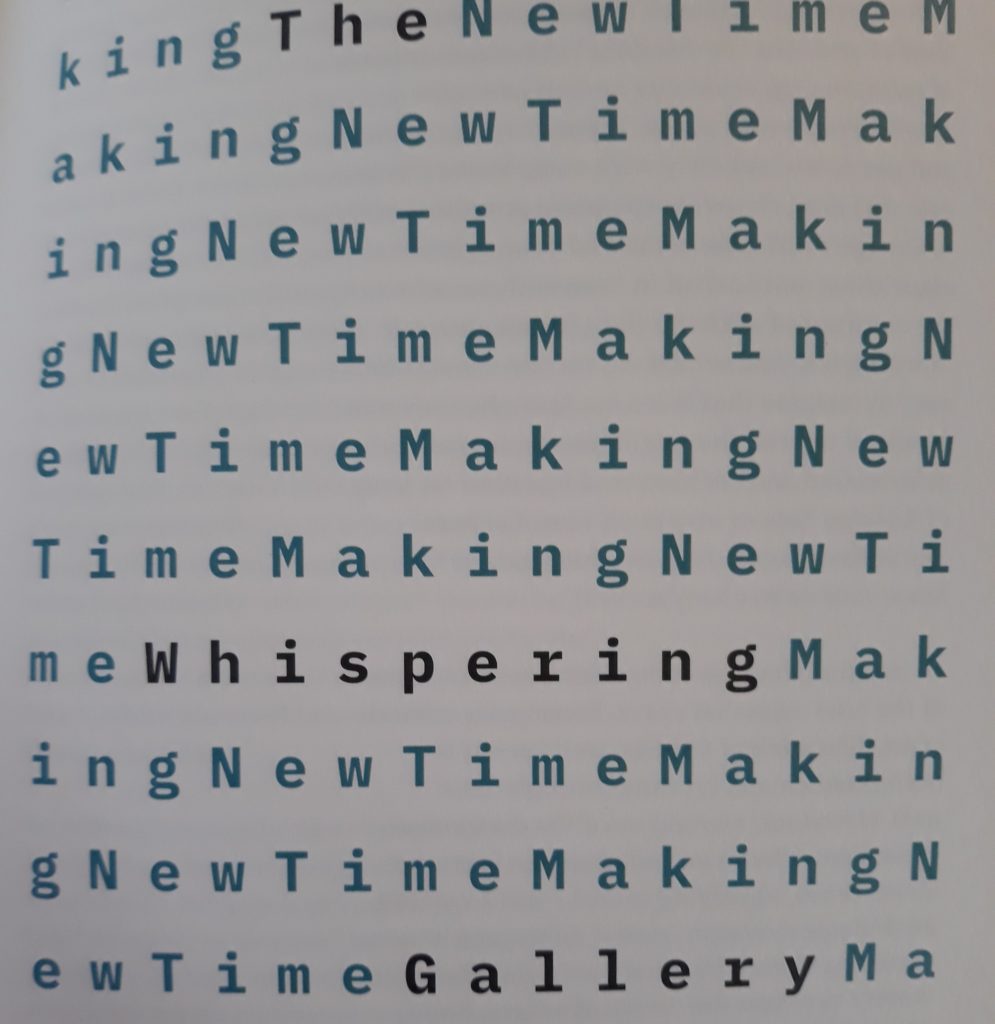
I rehear the almost-silence surrounding the unworn masks of a master Kwakwaka’wakw carver cover the painting shrouds of a deceased Lebanese artist, writhing with the bodily gestures of her painted forms. (Forget Ottawa for now, where the feminized body’s Continuous Fire burns with the words There is no excuse for abuse)
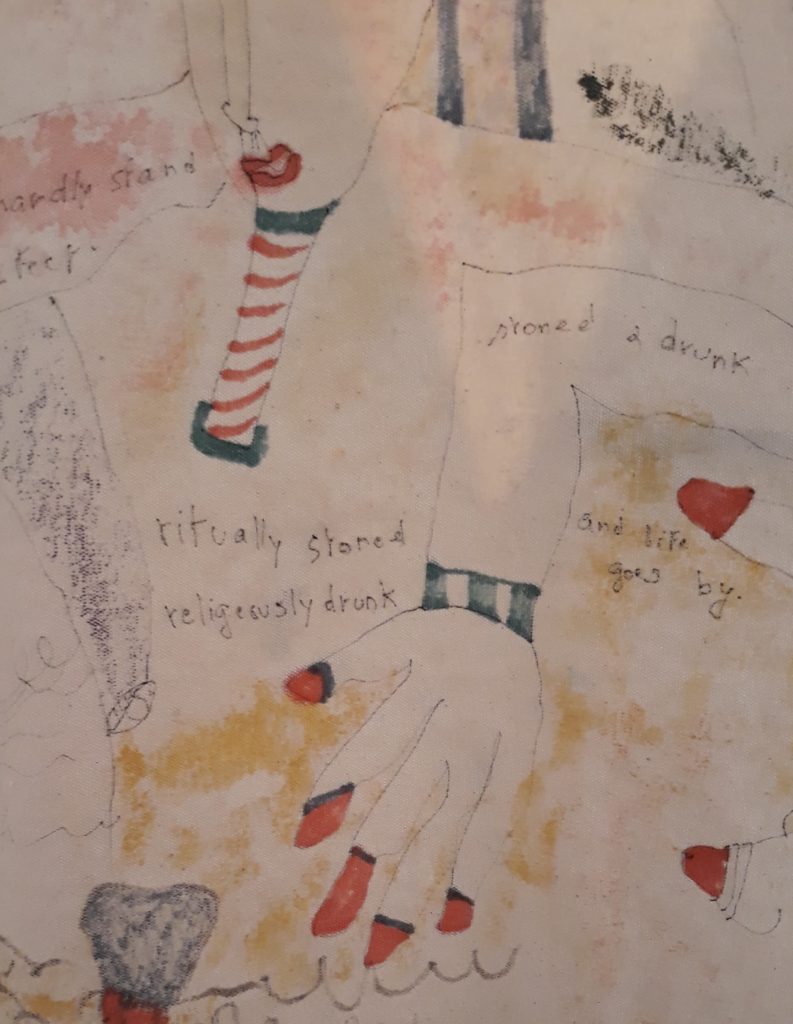
I rehear the sound of the wind blowing across the arctic tundra captured at the opening of Nipi(Voice), an Inuit film collective’s TV Politics show (amplified by a Tlingit curator in Venice and Toronto). Another gentler wind blew through the sand of Kalba as I walked with a Samoan artist during a performance of the abyssal Middle Passage. We talked about their ritual of gold leaf and coconut milk the day before, about books, libraries and reading rooms, beyond the gilded gazes of settler colonizers and their languages.
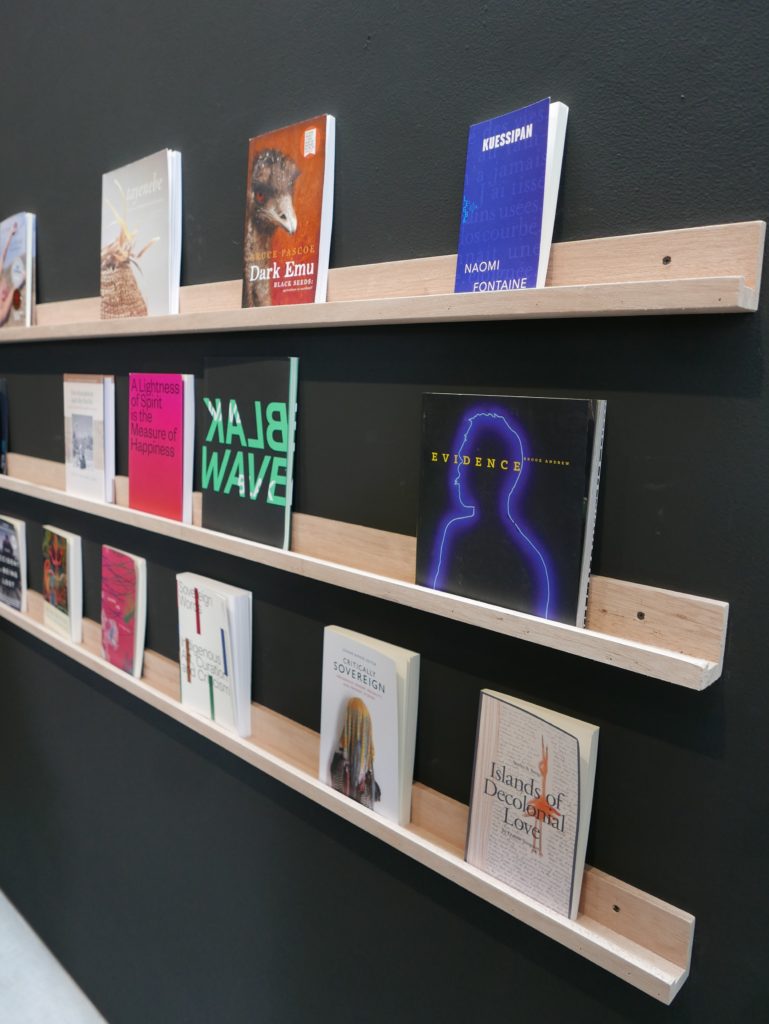
I rehear the sound of another wind in a sacred grove, blowing on a marble tent’s resilience and through hanged sheets of fickle color. A New Mexican mestizo collective’s fresh sound-wind of pinkness also blew across the well-fed land of old Europe at the entrance to a less-than-new museum. This gush of liminal sound sent my ears beyond the journey of the arrow to an Afghan artist’s wall of speakers to accompany the Flowers of Evil Empire in a Middle Eastern land.
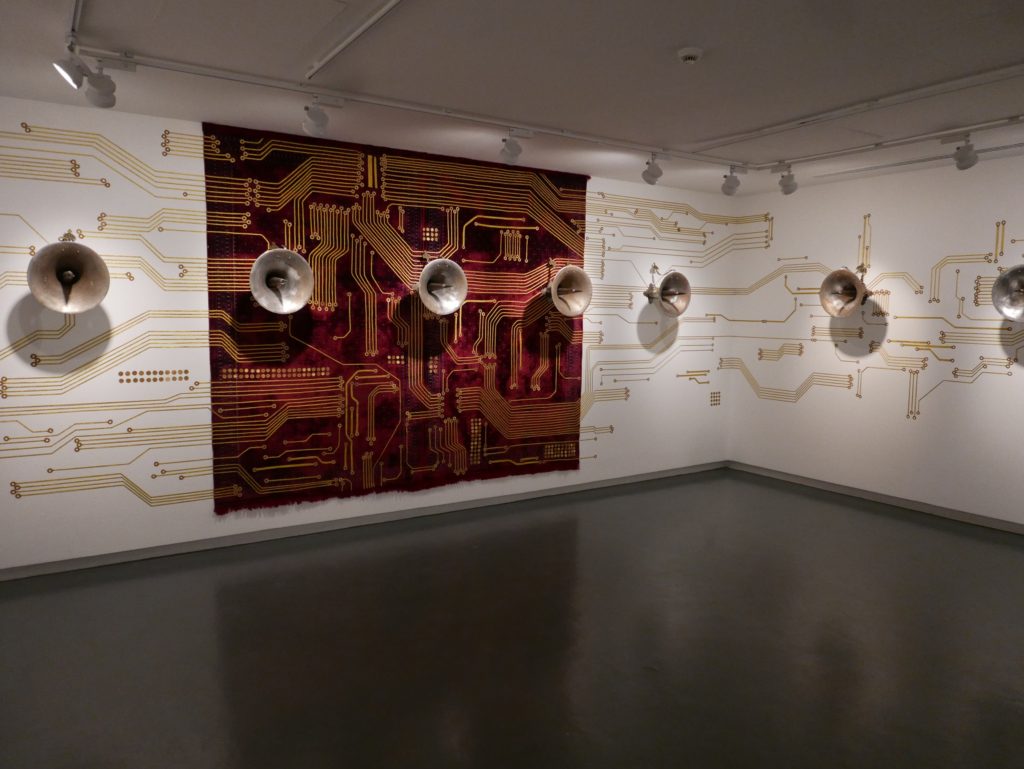
I rehear the clicking footsteps and orations of an Army of Beautiful Women at a Stoa. While I arrived too late to follow in the footsteps of a Guatemalan artist’s Presencia on Hope Street, I did spend time amid the voices and bodies of that same street’s bustling social sculpture. Again reaching it too late, I was party to another gathering at the utopian space of the 31st Century Museum of Contemporary Spirit. (Reminder of Toronto’s Tools for Learning to come).
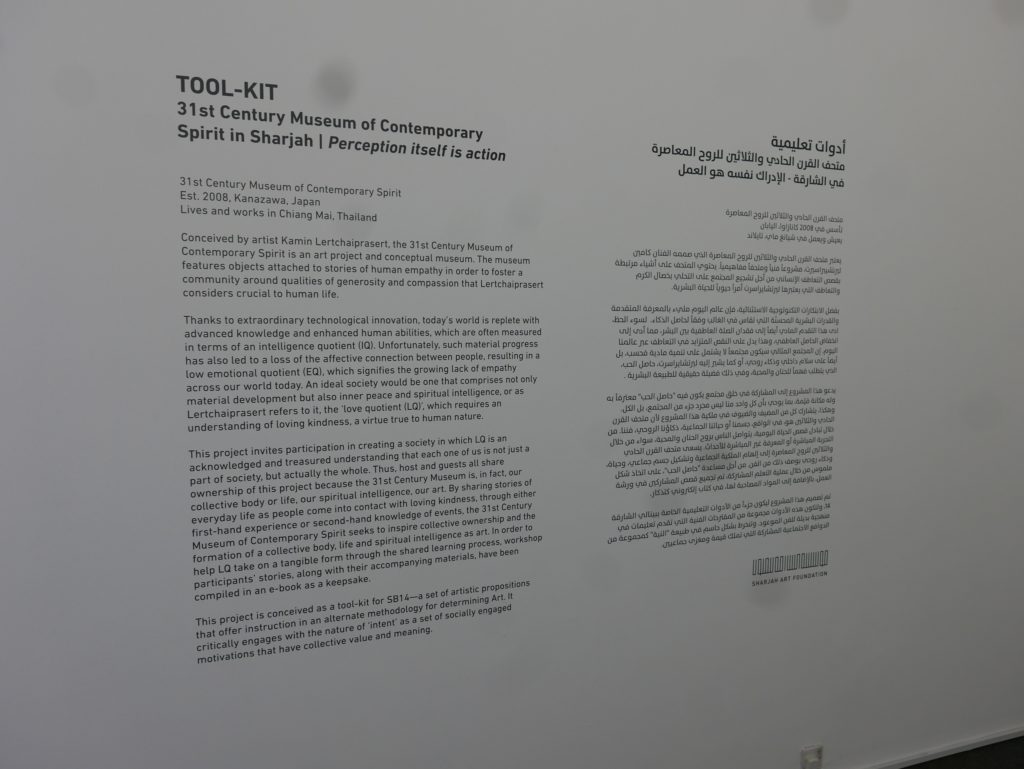
I rehear the wrinkled drawing hands of a Romanian artist, squeaking a marker across paper and am transported to an outdoor screening of the film Perfumed Nightmares, and how the aging filmmaker and the streets of the 1970s Manila echo the colonial subject’s resistance at play. It is a leap of de Carvalhoian proportions!
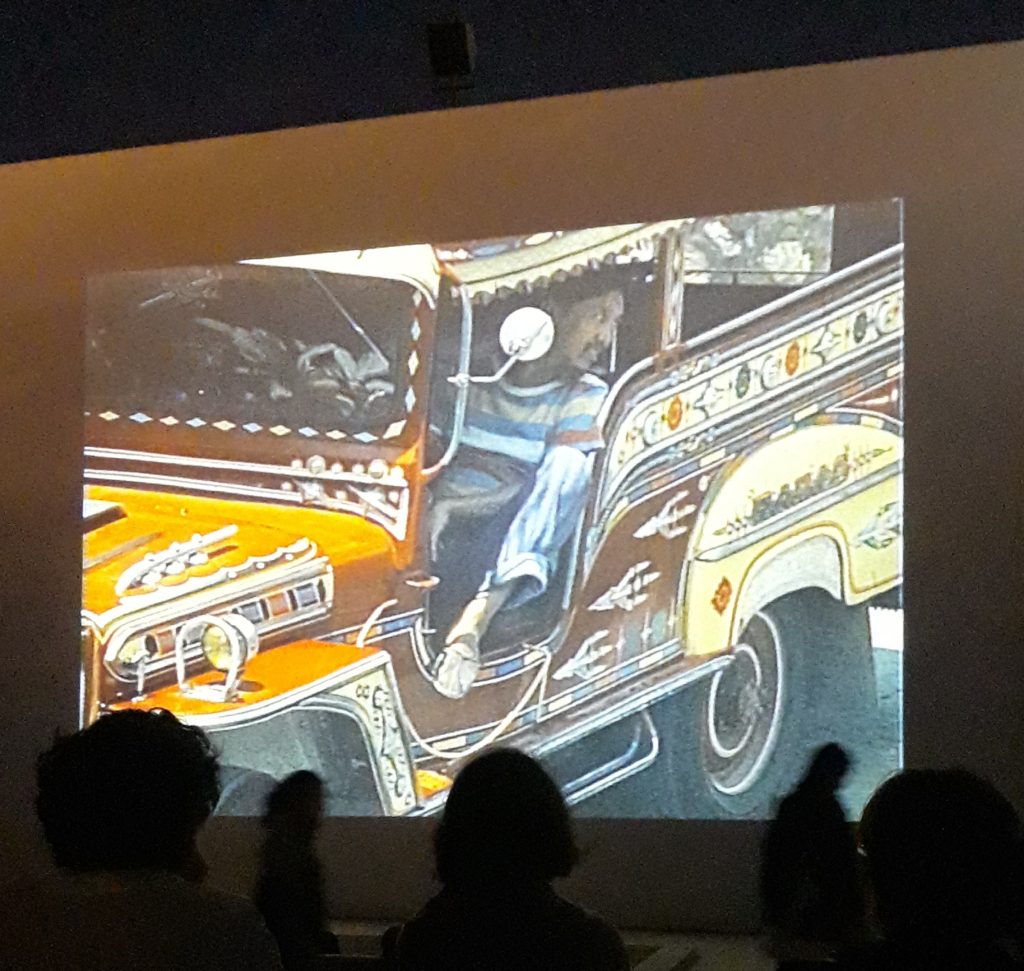
I rehear the title of a Jane Bowles story in an Iranian artist’s sculptural forms. A cross-media cover version, gently referenced in the passing of a biography of Miriam Makeba during a performance of her songs by a fellow South African artist (remembering that We Don’t Need Another Hero from Berlin).
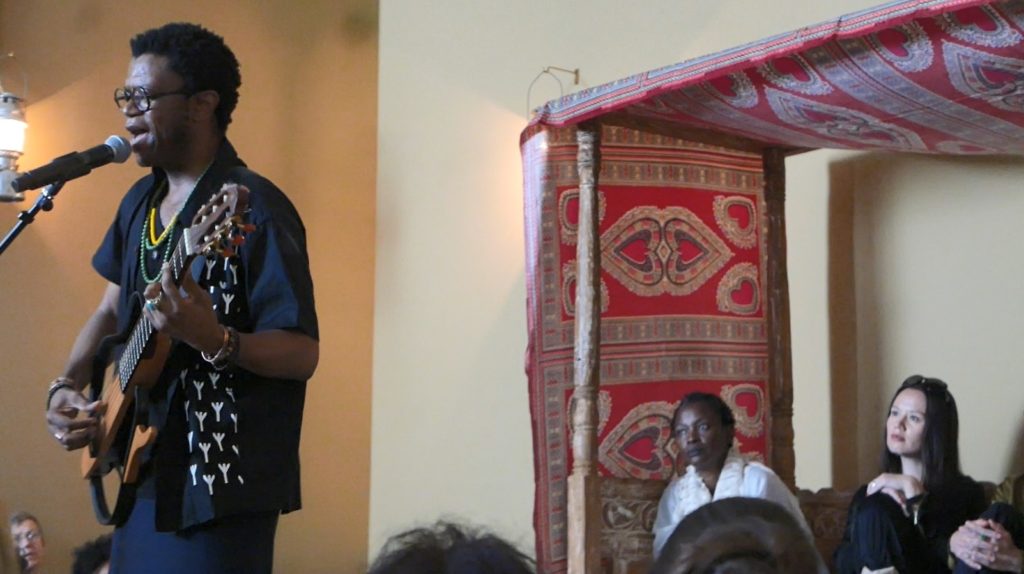
At this moment Echo’s resonant voice returns, I rehear the ape-narrator of Kafka’s Report in the ringmaster’s baritone and his empty pirate costume , scattered like bundles of a Guarani newspaper on an Australian settler colonizing floor.
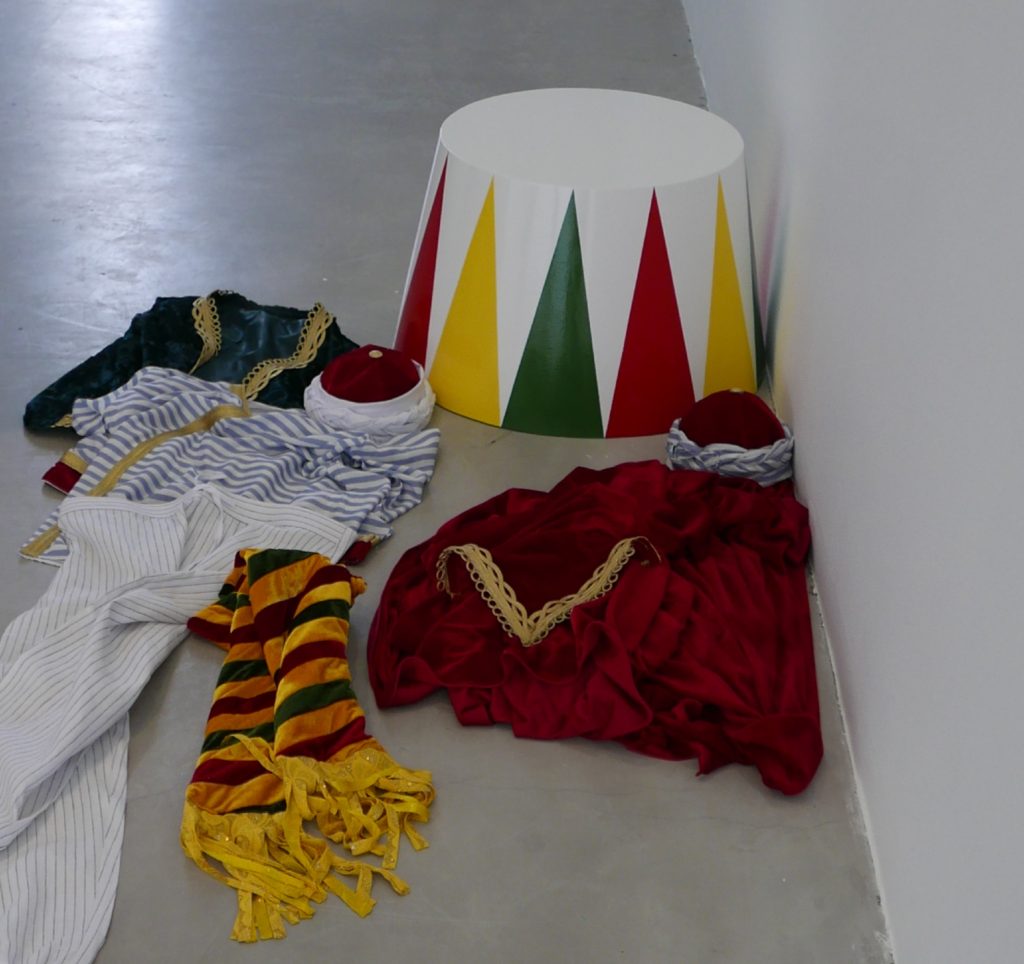
I rehear the alarm of white supremacist violence in the way earthly things are going reflected in aging ruins dreaming only to recall the hard chisel of the past (and other forms of phantom pain).
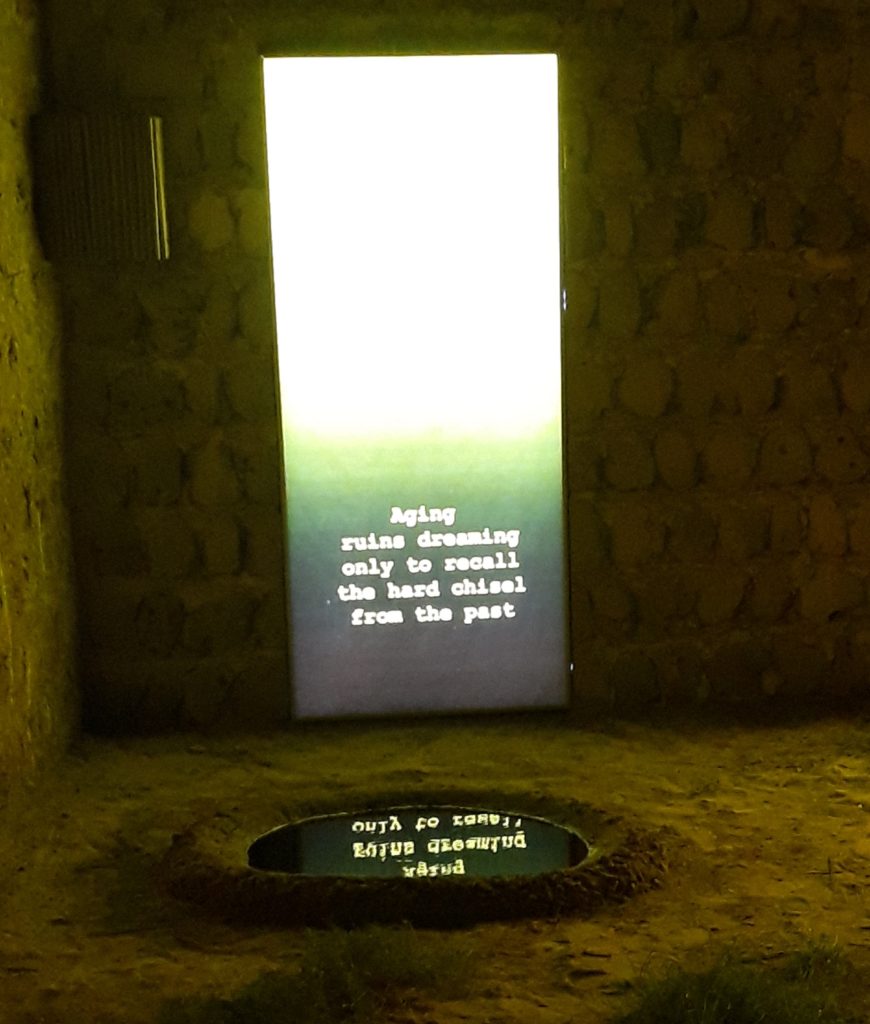
I rehear the whore-moans of white feminism in the twist and screech of skates at an ice-rink (whisper a temporary space for joy and freedom here):
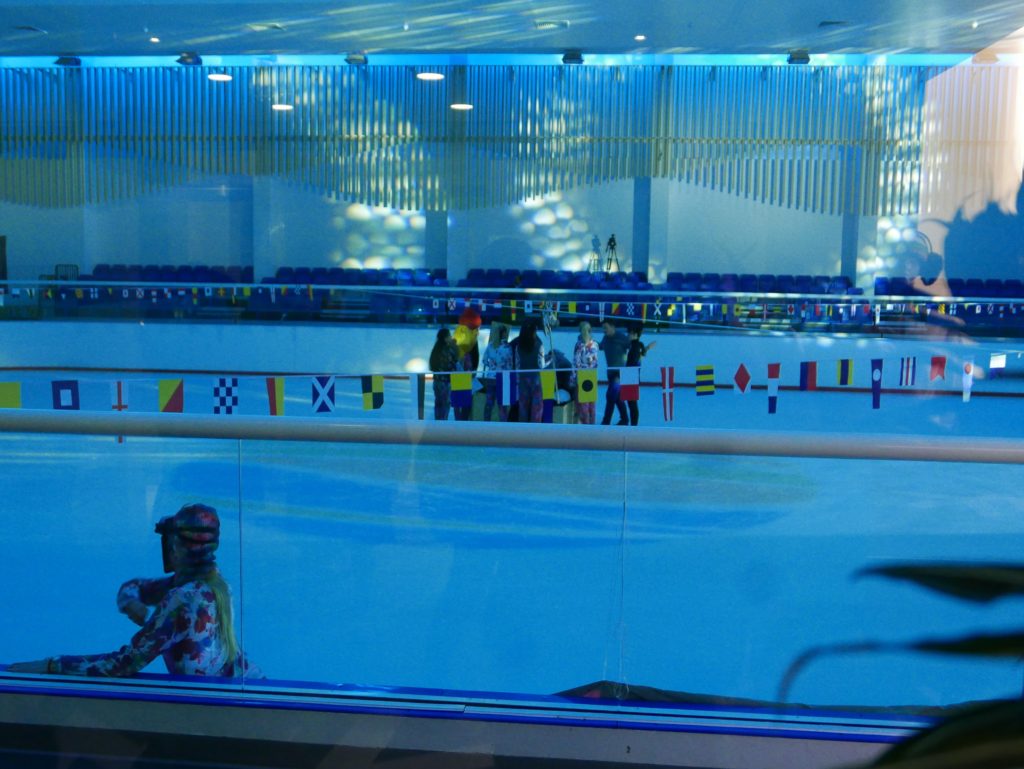
For all I reheard, Echo resounds her reparations from the crack begun from within the hole of the uproot. So, for our B Side, flip the disc for the secret: a funky satire of our socially dissonanced selves.
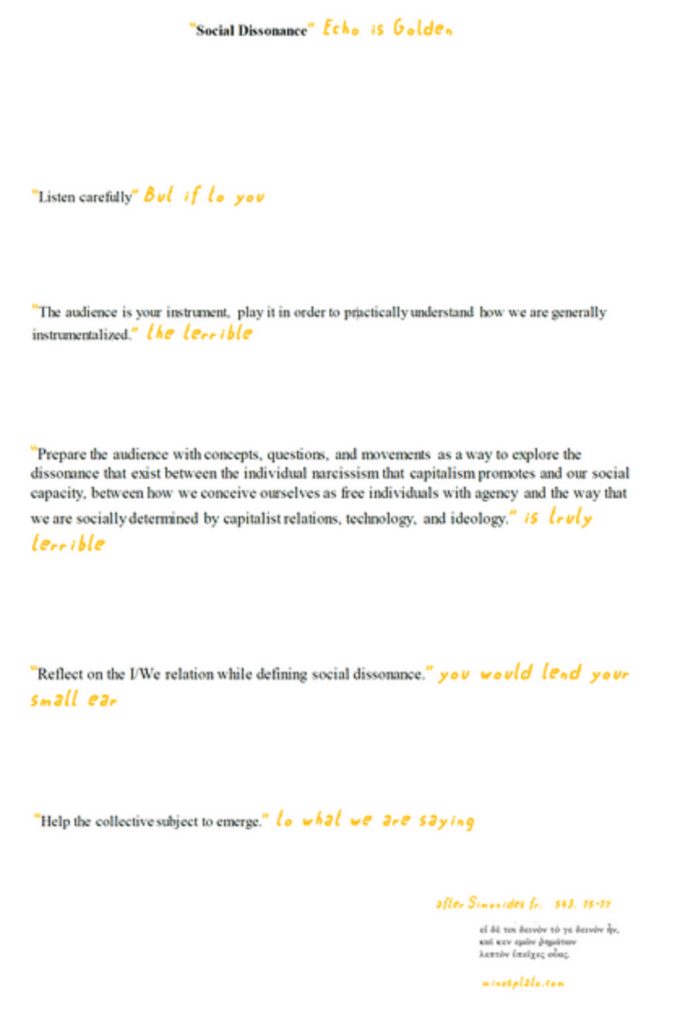
To be continued…
[‘The Gilding of Echo’ is an extract from Chapter 2: ECHOES of the ongoing online project Like Wind on Rushes which drafts a book to come called Whisper into a Hole.]